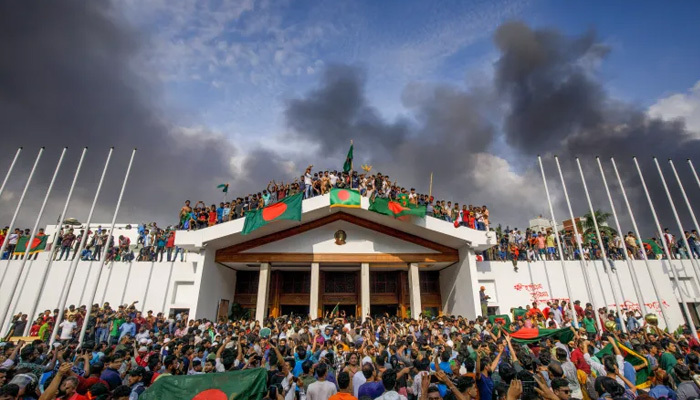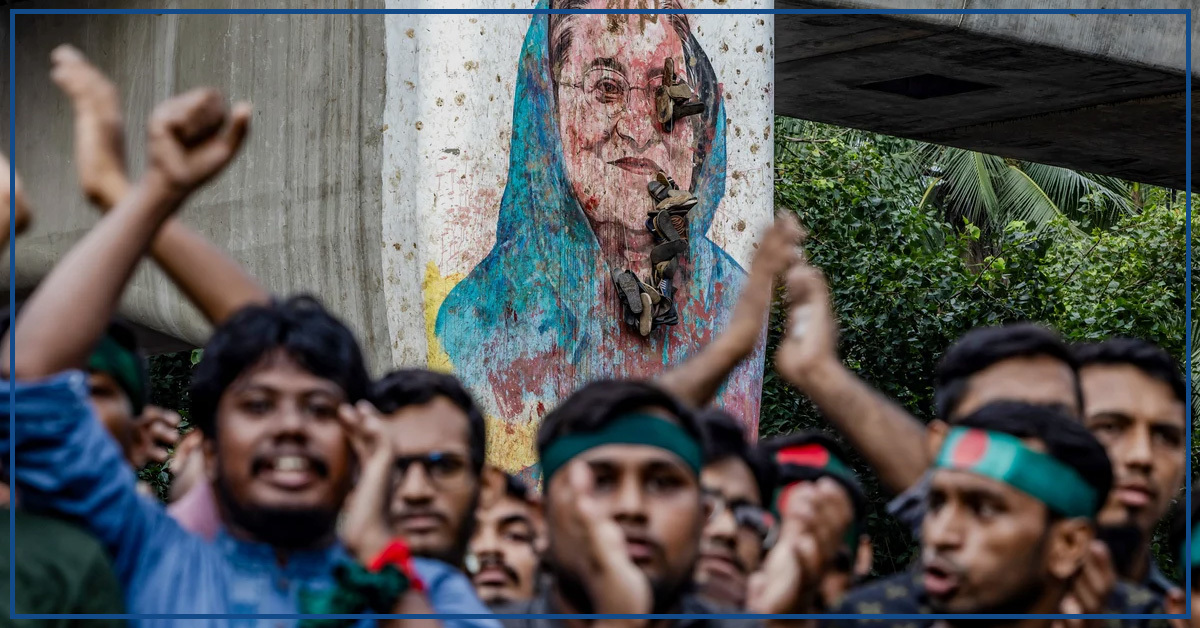Earlier this month, as protests erupted across Bangladesh and bodies lined the streets, Prime Minister Sheikh Hasina made a hasty exit, boarding a helicopter without informing her political aides or senior ministers. Within hours, she arrived in neighboring India, where she has remained since.

The unrest that led to Hasina’s departure began with student protests and rapidly escalated into a nationwide uprising, with hundreds of thousands demanding her resignation and a return to democratic governance. Hasina’s administration responded with severe violence, resulting in hundreds of deaths and thousands of injuries.
Hasina’s flight on August 5, following an attack on her residence by protesters, was met with widespread celebration in Bangladesh. However, in New Delhi, the collapse of her regime was viewed as a major setback. India, a longstanding ally of Hasina, had previously offered her refuge in 1975 after the assassination of her father, Sheikh Mujibur Rahman. She spent over six years in exile in India with her family before returning to Bangladesh in 1981.
Hasina’s strong personal connections with both the BJP and Congress in India solidified Bangladesh’s status as India’s closest regional ally. Her government facilitated significant economic and security cooperation with India, including access to key waterways and business opportunities. In return, India overlooked Hasina’s increasingly autocratic regime and was accused of intervening in Bangladeshi politics to support her administration, including pressuring other countries to recognize her leadership.
Diplomatic sources reveal that India leveraged its relationship with the US to shield Hasina from international criticism ahead of the 2024 elections. Despite efforts by US officials, including Ambassador Peter Haas and Assistant Secretary of State Donald Lu, to ensure a fair electoral process, India’s influence reportedly led US Secretary of State Antony Blinken to advise against further scrutiny of Bangladesh’s elections. Consequently, Hasina was re-elected amid widespread allegations of electoral fraud.
Over the past 15 years, the unique dynamics of the relationship between Bangladesh and India have increasingly caused dissatisfaction within Bangladesh.





